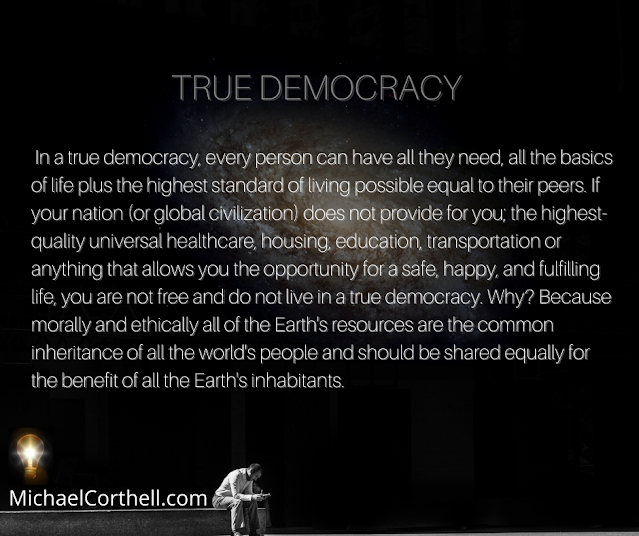''In a true democracy, every person can have all they need, all the basics of life plus the highest standard of living possible equal to their peers. If your nation (or global civilization) does not provide for you; the highest-quality universal healthcare, housing, education, transportation, or anything that allows you the opportunity for a safe, happy, and fulfilling life, you are not free and do not live in a true democracy. Why? Because morally and ethically all of the Earth's resources are the common inheritance of all the world's people and should be shared equally for the benefit of all the Earth's inhabitants.''
During wars and even natural disasters, even the most respectable people can be seen fighting over food and resources -- that's because when a person's basic needs are not met, they resort to whatever behavior is necessary to ensure the necessities of life for themselves and their families. By making the necessities of life available to all in the resource-based economy, by using participatory democracy and by having a meaningful and productive universal education, we can dramatically reduce negative behavior and have a more peaceful civilization.
Michael Corthell

Comments
Post a Comment